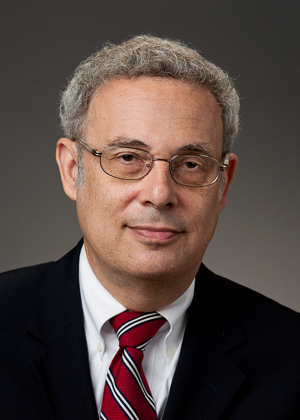Faculty Profile
Neil Weissman
Professor of Educational Studies; Russell I. Thompson Chair of the Dean of the College (1975)Contact Information
Waidner-Boyd Lee Spahr Library CIO Office
717-245-1139
Bio
His areas of specialization involve the comparative history of Russia, Japan, and Germany, with emphasis on the impact of revolution and modernization on traditional societies and cultures. His research deals with police and deviance in early Soviet Russia.
Education
- B.A., Colgate University, 1970
- M.A., Princeton University, 1972
- Ph.D., 1976
Awards
- Lindback Award for Distinguished Teaching, 1984-1985
2025-2026 Academic Year
Fall 2025
FYSM 100 First-Year Seminar
The First-Year Seminar (FYS) introduces students to Dickinson as a "community of inquiry" by developing habits of mind essential to liberal learning. Through the study of a compelling issue or broad topic chosen by their faculty member, students will:
- Critically analyze information and ideas
- Examine issues from multiple perspectives
- Discuss, debate and defend ideas, including one's own views, with clarity and reason
- Develop discernment, facility and ethical responsibility in using information, and
- Create clear academic writing
The small group seminar format of this course promotes discussion and interaction among students and their professor. In addition, the professor serves as students' initial academic advisor. This course does not duplicate in content any other course in the curriculum and may not be used to fulfill any other graduation requirement.
Spring 2026
EDST 120 Contemp Iss in Amer Education
An examination of current policies, practices, and problems in the landscape of American education with particular attention to the perspectives of various stakeholders (e.g. teachers, students, families, community leaders, employers, and elected officials). U.S. diversity with respect to race, class, gender, language, and exceptionality is considered within a variety of educational contexts. The course also examines the ways in which educational issues and reform efforts intersect with social, economic, political, and cultural forces.
EDST 391 Leadership & Higher Ed Chlg
One expert has called academic leadership "nearer to true leadership" than other types. This course explores that claim as a vehicle for understanding how colleges work. We will examine proposed models of higher ed organization: among them bureaucratic, collegial, feminist, anarchic, and spiritual. Then gauge what they do or don't illuminate about academic leadership using case studies and interviews on contemporary higher ed challenges. Who leads colleges and universities? How? What does this mean for the future?
